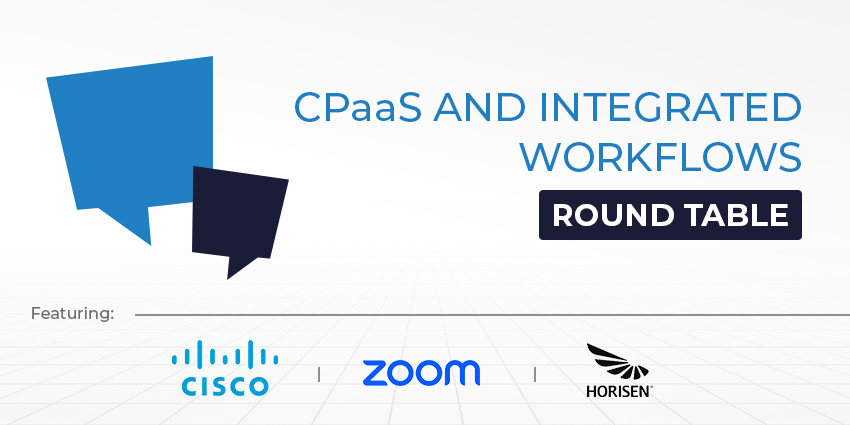The massive adoption of remote work flexibility has accelerated a trend that was already well underway: IT MSPs are now increasingly offering telecom and datacom services.
Given the tech-centricity of remote access, it was probably inevitable that IT MSPs would enter into the lucrative cloud communications market. After all, MSPs have an ongoing, working relationship with their clientele, whereas “pure-play” telecom providers are seen as a utility. Telecom relationships also tend not to be high touch. So when a customer goes looking for all the ways they can leverage their connectivity, they don’t turn to the provider. They tend to rely on their IT resource.
Now, a lot of those IT MSPs are rushing through the open door to seize these opportunities. But what they might find on the other side could actually deny them the sizeable margins they’re looking for. In fact, if they’re not careful, they could torpedo those customer relationships altogether.
Not surprisingly, it’s all about the money.
Easy Money Can Come With Hard Lessons
For those MSPs new to the telecom space, the money may look easy. This is even truer now with the advent of cloud communications platforms that offer virtually turn-key services that anyone can resell. Given most IT MSPs’ reselling model for equipment and other cloud services, the fit seems natural. These MSPs know integration and configuration. They know sales. Most importantly, they know their customers.
What most IT MSPs don’t know is telecom billing. Even if their entire customer base is on retainers, the simplicity of that billing structure, with the occasional extra services or sales thrown in, pales in comparison to the ever-changing complexity of telecom billing.
The essential truth of telecom billing is that it is seldom the same bill for the same customer two months in a row. It’s possible to lose track of some revenue from one month to the next. That loss comes straight off the bottom line. Worse still, if that oversight is “baked in” to the recurring billing, that loss happens automatically every month until it’s corrected; and it may potentially never be recovered.
Worst of all, billing errors can get an MSP into substantial tax trouble.
The Devil In The Details
The complexity of telecom billing comes from the pricing models. They are invariably usage-based in one way or another. Different rates yield different bills. What’s more, those rates differ for various services. Multiply those services by the number of customers you have, and you have a baseline for the complexity of invoice generation.
There may be discounts involved as promotional incentives. Such incentives may only apply to specific customers and certain line items in the contract. These get applied at the customer level and tend to have sunset clauses. Your billing process needs to track and account for them all.
Cloud communications platforms’ ability to quickly activate a range of services may sound like an easy path to cross-sales. But those service changes can punch a hole in your profitability if they are not captured in the billing. This can become an issue on both sides of the ledger: You may lose revenue because service upgrades are not being billed, or you may erode customer loyalty by over-charging when services are scaled back. Neither scenario is good for business.
And then there’s the matter of the taxes.
IT MSPs who are new to the telecom space are probably not aware of the unbelievable complexity of telecom taxes. Because these services involve public rights-of-way, taxes and fees from multiple jurisdictions can apply to those services, each with their own basis and their own rate. The MSP is on the hook to pay those taxes. Yes, the MSP is entitled to recover the charges from customers. But that means they must be tracked, applied and billed. Failure to manage this process correctly can be fatal to a business.
The Angel In The Cloud
Fortunately, there are tools to address all of these challenges. Better still, IT MSPs may be quicker to understand and implement these tools than legacy telecom service providers.
Cloud-based telecom subscription billing platforms are purpose-built for tracking and invoicing telecom services. IT MSPs can easily appreciate the advantages of cloud-based software. A cloud platform enables quicker and surer integrations with other applications—including cloud communications platforms and accounting software. It minimizes maintenance and benefits from best practices across the platform’s entire user base.
Perhaps best of all, these billing platforms integrate seamlessly with tax databases. These databases are constantly maintained, so changes to tax regulations in any jurisdiction are always reflected in the data and in the bills that the system generates. For this reason alone, a cloud-based subscription billing system with an integrated tax database provides critical infrastructure for any telecom services provider.
As more companies leverage their telecom and datacom connectivity for essential business processes, IT MSPs are perfectly positioned to grow their businesses and increase their profits. Equipped with the right billing platform, they can effectively manage that growth and realize those profits.
If they do that, being a holistic, service-based MSP in the middle of this convergence could be the best place to be. And crunch time will be the best time to be there.
Guest Blog by Patrick Elliott, VP of Marketing at Rev.io
Patrick Elliott is the VP of Marketing at Rev.io. He leads the team responsible for content creation, creative design, in-market execution, advertising, media strategy, and demand creation for Rev.io’s billing and back-office software platform. Patrick has nearly 15 years of experience in B2B marketing, product and brand management, and business development in a variety of technically sophisticated industries, including enterprise technology.







